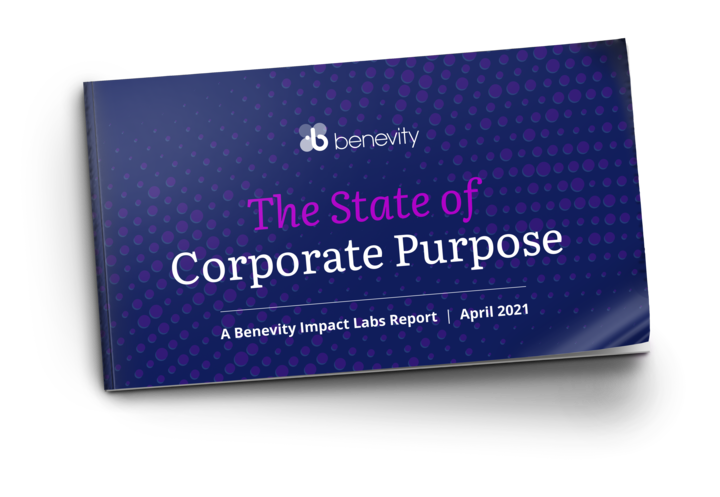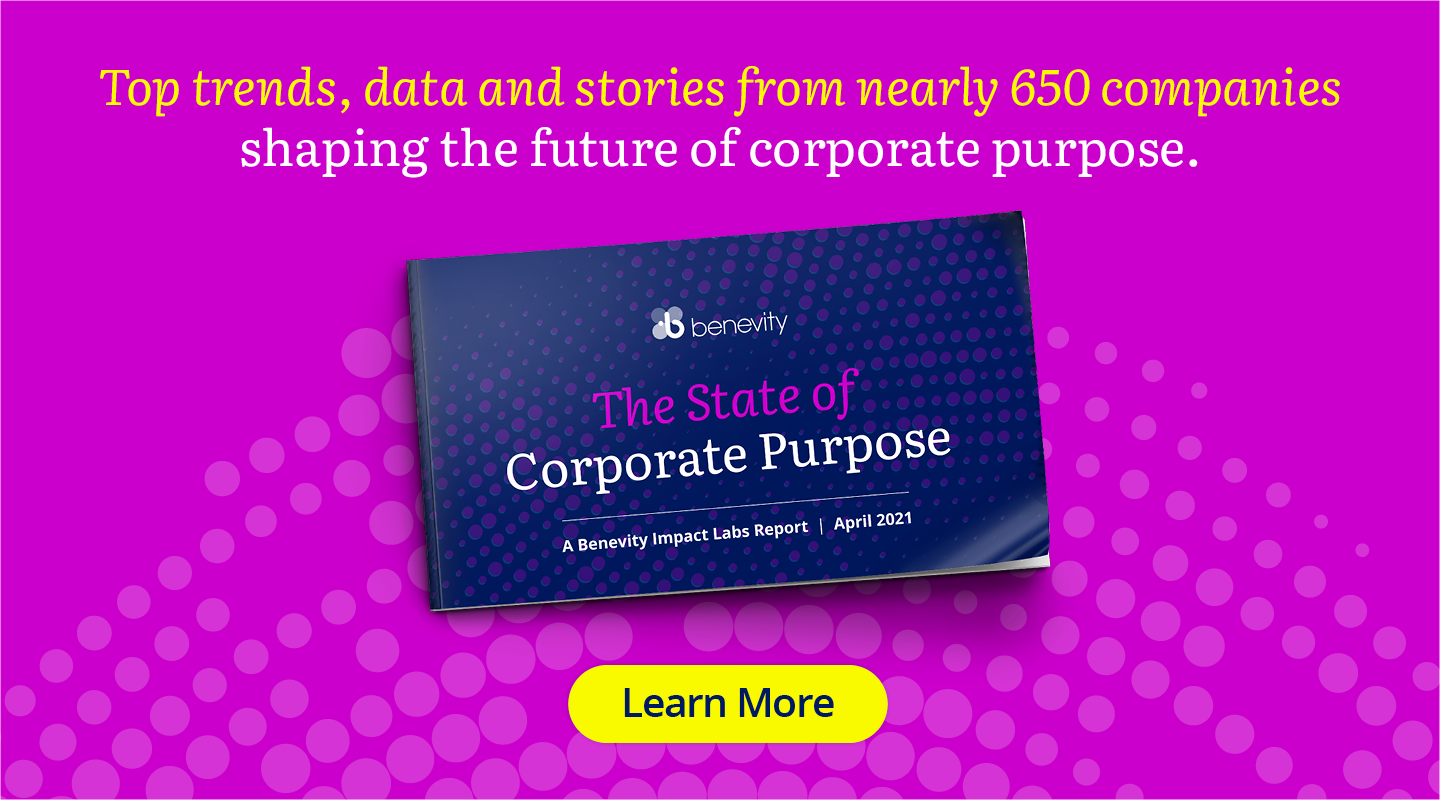You will find dozens of reports about the failure of business to live up to people’s expectations when it comes to corporate purpose, but this isn’t one of those reports.
In terms of advances like minimum wage increases, environ¬mental sustainability and diversity in the workforce, there is certainly a lot of work still to be done. Companies have had years to make meaningful changes on these issues, and the 2019 Business Roundtable saw 181 CEOs make commitments on them to all stakeholders, ushering in a new era of stakehold¬er capitalism.
But look closely and you’ll see that corporate purpose is very much taking shape, and taking hold, where all great movements do — with a groundswell propelled by the people. Companies are listening to their employees, customers, investors and community organizations who are defining what stakeholder capitalism looks like by selectively choosing who to work for, buy from, invest in and partner with. On all counts, they are going with brands that walk the talk: those who take authentic, transparent, measurable action on the critical issues of our times and don’t just make statements about them.
From Statements to Action
This shift toward a more action-oriented approach to corporate purpose was already well underway before the seismic events of last year, and it will continue long after, but the crises of 2020 accelerated the shift. Last year, more companies executed on corporate purpose in tangible and transparent ways, despite economic uncertainty. With statements came announcements of social investments, as well as employee and customer campaigns, providing proof of purpose in the moment.
In 2020, Benevity saw a 16% year-over-year growth in the number of companies adopting its technology to power their corporate purpose programs, helping them deliver tangible action on the issues that matter to their constituents.
Despite Uncertainty, Investment in Corporate Purpose Grew
In 2020, despite major economic uncertainty and turmoil in some industries, corporate purpose budgets mostly remained unchanged or grew, according to a survey of 101 Benevity clients. In the survey, we found that 30% of budgets grew, 50% remained the same and 18% were reduced. We also heard that some companies activated disaster relief budgets in the face of both the pandemic and racial justice movements, ensuring their year-round budget was not negatively impacted by these unforeseen events.
Purpose-driven companies perform better in every way
In the boardroom and across business, it’s universally agreed (and empirically proven) that companies that successfully merge business goals with responsible ESG practices are the most profitable, sustainable and resilient. Many businesses are quickly discovering that their corporate purpose programs play an instrumental role in driving ESG outcomes and that an authentic people - and culture-focused ESG strategy is the most likely to succeed — by all standards.
Many companies are mature on the “E” and “G” in ESG. The “S” is starting to take shape as companies and individuals coalesce around societal and human issues and make them a priority.
An Evolving “Why” for Corporate Purpose
With remote work becoming ubiquitous in 2020, and the physical distancing requirements as a result of COVID-19, companies started to consider a new raison d’être for their corporate purpose programs, especially as it pertains to employee engagement. In our 2020 client survey, we found that more companies saw the mounting value of these programs in building culture and engagement alongside purely driving positive social outcomes like traditional employee giving programs. While 59% of corporate purpose leaders felt these programs were critical for helping nonprofits in times of need, almost as many — 58% — felt they were valuable for fostering employee connection and 49% indicated their programs became more critical than ever to building culture.
As we enter the post-COVID world (hopefully soon!), the changes to the employee experience and the prevalence of remote work will make the connective and unifying elements of corporate purpose programs even more critical in attracting, retaining and engaging workers.
Global Goodness Continues to Grow
Last year, as grassroots movements and global crises swept across the globe, we witnessed a growing need to support employees with access to hyper-local causes and content, and to provide nonprofits with community grants. This accelerated the growth of global corporate purpose programs.
Correspondingly, in 2020, 67% of companies and their people gave internationally (up 32% year over year) and 64% offered global employee engagement programs (up 31% year over year). This past year, 39% of Benevity clients added international users in 126 countries. The expansion came in three waves: first in response to COVID-19, as companies sought to engage all of their employees and customers in global pandemic relief efforts at the local level. The second wave came in the summer in response to the groundswell around racial equity. The third came in the fall as more companies launched their corporate purpose programs in time for the giving season.
As the corporate purpose space matures, we’re seeing more companies launching with global programs right out of the gates. And with diversity, equity, inclusion and belonging being at the top of the executive agenda, we expect to see inclusive global programs becoming the standard, especially as we collectively tackle global issues like equity, climate and health.
An All-Encompassing
Approach to Action
Traditionally, companies have been somewhat restrictive in what “counts” toward action in their corporate purpose programs, especially when it comes to employee and customer actions, as they have been hamstrung by the need for verifiability and auditability. However, in an empowered, social media–driven world, action is taking on a much broader definition. It can include anything from consuming content to learning, dialoguing, sharing, signing a petition, commenting or inviting others to join in on the action.

The 2020 Benevity Impact Report
Purpose has been recognized as a key component of long-term business resilience and sustainability — and it's driven a significant increase in all aspects of corporate purpose. The Benevity client community created record-breaking impact in 2020 and we're sharing all the details as part of The State of Corporate Purpose report.


